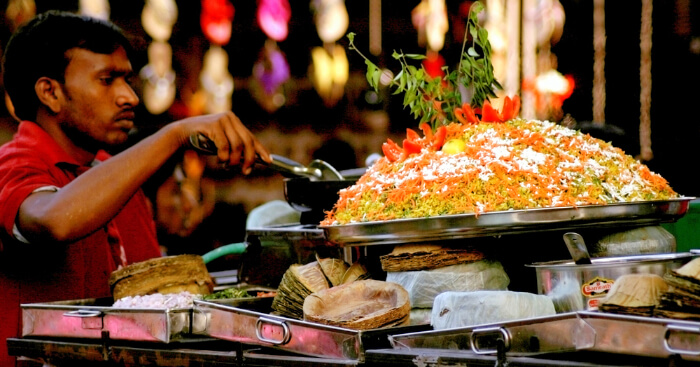Pradeep Kumar Panda
Food safety is linked in direct and indirect ways to achieving many Sustainable Development Goals, especially those on ending hunger and poverty, and promoting good health and well-being.
Food and nutritional security is realised only when the essential elements in food are safe to intake, and when consumers recognise this. Food safety is vital for growth and transformation of agriculture, for the modernization of national food systems, and for a country’s efficient integration with regional and international markets.
Food safety results from actions or inactions of stakeholders operating under diverse environmental, infrastructure, and socio-political conditions. These include farmers, food handlers and distributors, food manufacturers, food service operators, consumers, regulators, scientists, educators, and the media.
Awareness of food safety hazards shapes behaviour; people can then use technical, financial and other capabilities to adopt safe practices and to suitably modify prevailing rules. Policies, investment and other interventions strongly influence food safety outcomes. They alter awareness, capabilities and practices of stakeholders, from farm to fork.
Well-functioning markets can provide farmers the incentives to supply produce that matches safety characteristics consumers demand. Still, there are circumstances where pure market signals fail and additional measures are needed.
With a proactive strategy and proper prioritisation of problems and measures, countries can avoid losses from the burden of FBD amounting to hundreds of millions of dollars a year
Typical crises would be outbreaks of food-borne diseases (FBDs) causing death, food adulteration, trade bans and widespread consignment rejections owing to poor standards. In developing countries, these episodes have tended to spur reactive and defensive damage control, resulting in a flurry of regulatory actions or investments.
Years of inadequate policy attention and underinvestment have stunted development of coherent national food safety management systems in low- and middle-income countries (LMICs). Most countries have weak food-safety systems in terms of scientific evidence, necessary infrastructure, trained human resources, food safety culture and enforceable regulations.
Governance of national food safety systems in LMICs is also weak. While LMICs have islands of strong food safety management capacity, these support only segments of agri-food system and consumers.
Infrastructure and services required to mitigate food safety risks the poor face are especially weak. Their FBD burden is often invisible and voiceless. Dominant discourse on food safety in LMICs has focused on trade; but this needs to change. Complying with food safety regulations and the standards of international trade partners has been a prime objective of investments in food safety by LMIC governments and bilateral and multilateral donors.
A significant share of food safety problems and associated costs can be avoided if a concerted set of preventive measures are put in place. While indicators support a food safety lifecycle that tracks economic development, rapid upward trajectory of public health costs and trade disruptions are not inevitable. Indeed, a significant share of food safety problems and associated costs is avoidable.
With a proactive strategy and proper prioritisation of problems and measures, countries can avoid losses from the burden of FBD amounting to hundreds of millions of dollars a year and these losses can run up to several billion dollars for larger countries.
In doing so, countries can minimise disruptions to markets and livelihoods that come from periodic food safety scares and prevent these episodes from dominating consumer perceptions about the underlying quality and safety of local foods and the integrity of the food governance arrangements in place.
While food safety is a “public good”, governments do not take and cannot be invested with the primary responsibility for it. Rather, ensuring food safety needs to become a shared responsibility. Operationalising this concept effectively is a significant challenge in many LMICs.
Governments need to play effective vision-setting and convening roles, and provide reliable information to other stakeholders; they also must effectively deploy a wide set of policy instruments — both carrots and sticks — to involve, incentivise and leverage actions of farmers, food business operators and consumers.
While practitioners once emphasised effective official food control systems, the most critical roles for government are now recognised as facilitative, inducing investments and behaviour changes by actors that share with government the goal of and responsibility for safer food.
This inclusive concept of food safety management may require a paradigm shift in how emerging countries approach food safety regulation. The traditional model centers on enforcement through inspections of food facilities and product testing, and systems of legal and financial penalties for infractions.
A shared management model implies a move from a regulator-regulated relationship toward efforts by governments to better incentivize and facilitate safe production, processing, and distribution of food. The role of regulation then becomes one in which the absolute minimum food safety standard is applied, thereby leaving food business operators with some degree of flexibility in how they attain that standard, and for government to offer information and other resources and support to motivate and assist compliance.
Thus, the results of regulation are measured in terms of compliant enterprises and food safety outcomes rather than the number of fines or business closures. Governments of LMICs not only need to invest more in food safety but also to invest more smartly.
This means investing with a clear purpose and tracking the impacts of interventions; investing in the foundational knowledge, human resources, and infrastructure for food safety systems; balancing attention to hardware and software; realizing synergies among investments and in the pursuit of goals; ensuring the sustainability of investments and outcomes; and using public investment to leverage private investment.
Not all investments that can reduce the burden of FBD are ones typically regarded as “food safety” investments. Critical investments may be ones that address environmental health issues, such as those that increase access to potable water and improve sanitation or lessen environmental contaminants in soil, water, and air.
Measures like these reduce the propensity for cross contamination in food supply chains. Also important are investments in public health systems, including those that improve the quality of and access to medical treatment, which can reduce morbidity and mortality related to FBD.
The writer is an economist. e-Mail: pradeep25687@yahoo.co.in.






































